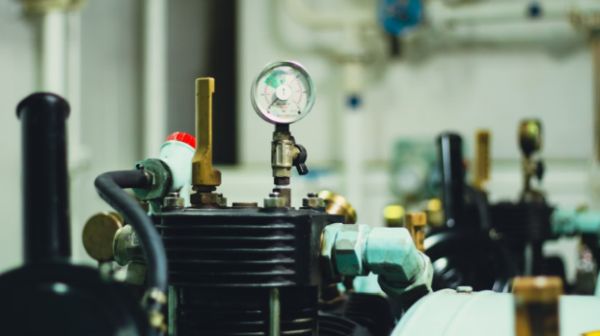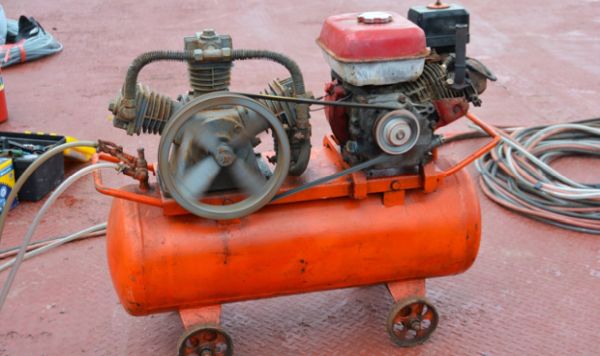4 Things to Know About Oil Free Air Compressor Before Picking Up a Rental
 Oil-free air compressors function similarly to their counterparts; however, instead of using oils as lubrication, they use pre-lubricated materials or water to keep mechanisms running smoothly.
Oil-free air compressors function similarly to their counterparts; however, instead of using oils as lubrication, they use pre-lubricated materials or water to keep mechanisms running smoothly.
Therefore, they provide clean compressed air for pharmaceutical and medical applications where even trace contaminants could potentially spoil products or cause equipment malfunction.
These models require less maintenance than their lubricated counterparts.
1. Energy Efficiency
Chances are, when shopping for a compressor or speaking to a sales rep about various models, you will hear some industry jargon that might make the decision process difficult for you and your business. Understanding this terminology may make deciding on a compressor complex.
An oil-free compressor not only uses less energy than its oiled counterpart, but according to this article, it will also outlive it! This is because its internal components don’t rub against each other and wear down over time due to lack of lubrication – something an oily compressor’s components do.
Oil-free compressors use less energy by eliminating the need for an oil separator and filter, which are usually required by their counterparts but generate additional costs and waste.
By comparison, oil-free compressors do not lose energy due to carryover oil into their compressed air stream, thus producing cleaner, purer compressed air for production purposes.
 2. Quiet Operation
2. Quiet Operation
Oil-free compressors tend to be quieter than their oil-injected counterparts due to not relying on oil to lubricate internal components. Oil-less compressors feature Teflon-coated cylinders that keep compressed air dry, eliminating floating oil particles, which could contaminate tools or equipment if produced using traditional means.
Oil-free compressors produce less noise than their oil-injected counterparts, yet still make some. If you want to lower their decibel level further, there are a few simple modifications you can make; sound blankets may help absorb mid-to-high frequency sounds and decrease decibel levels by up to 2 decibels; additionally, installing a muffler on the intake may further help in this regard.
Relocating your compressor outside can also reduce its noise output significantly. However, this may not always be practical depending on where it is being used, and in certain climates, it could become too cold or rainy for this option.
To further minimize noise production by your compressor, have regular professional cleaning and maintenance performed by an expert, ensure all metal parts are lubricated, and have an air filter free from debris. Plus, all other components remain in working condition.
3. Environmentally Friendly
An oil-free compressor offers many environmental advantages over its counterpart. Unlike traditional oil-lubricated compressors, which emit toxic fumes or gasses that harm the environment and lead to health concerns for employees working nearby, oil-free compressors don’t waste energy – cutting utility costs significantly.
Many industries require access to pressurized air but cannot take the risk of oil contamination for granted. This is particularly pertinent in environments that must meet specific quality standards when manufacturing goods – like food and pharmaceutical companies or medical facilities.
Aerzen offers a selection of oil-free compressors to meet your individual needs – rotary screw, centrifugal, and scroll types are available.
The models available here: https://www.aerzenrental.com/oil-free-air-compressor-rental.html uses various technologies to avoid using oil in the compression chamber and any potential for contamination. Some use Teflon coatings that prevent mechanical contact between moving parts, while others use alternative lubrication solutions.
Although class 0 oil-free compressed air may appear contaminant-free, it still contains other impurities, including water vapor and microorganisms not present when initially drawn into the compressor.
Compressors themselves, storage devices, and pipes may introduce additional pollutants that must be eliminated using air filter systems; otherwise, additional maintenance and replacement parts will likely be needed to keep things running smoothly.
Oil-free compressors provide numerous advantages that will undoubtedly add to your company’s bottom line, especially given today’s growing interest in eco-friendliness and going green. Making an eco-friendly investment could be a wise move for many businesses today.
4. Low Maintenance
An oil-free compressor differs from oil-injected compressors by not needing additional lubrication – meaning reduced maintenance costs and making them a more cost-effective option. Plus, no need to store and dispose of oil, purchase filters as often, etc.
These compressors produce less heat during their operations and reduce heating production while working by not using oil to seal and cool their pump cylinders. This extends their lifespan.
These compressors feature an internal filtration system to remove contaminants from the compressed air stream. Air filters made of paper or felt can usually be cleaned and reused over time; however, they must be replaced if they show signs of wear and tear.
This type of compressor is ideal for businesses that require consistent access to pressurized air but work in environments where even trace amounts of oil contamination are unacceptable, such as manufacturing companies that need oil-free dry air during production processes.
Pharmaceutical/chemical plants where trace amounts could contaminate final products or healthcare facilities where any trace amount could cause infection.





